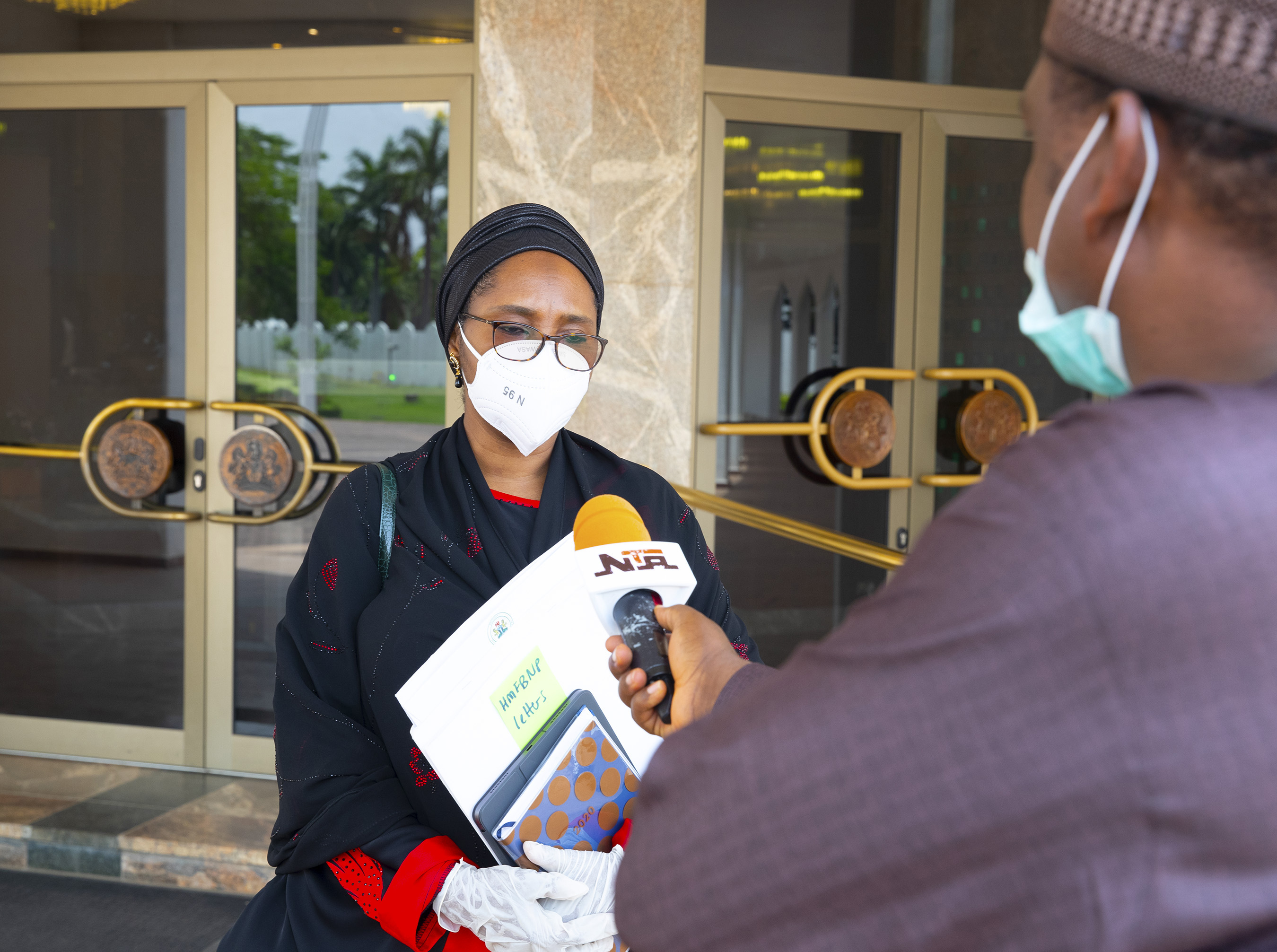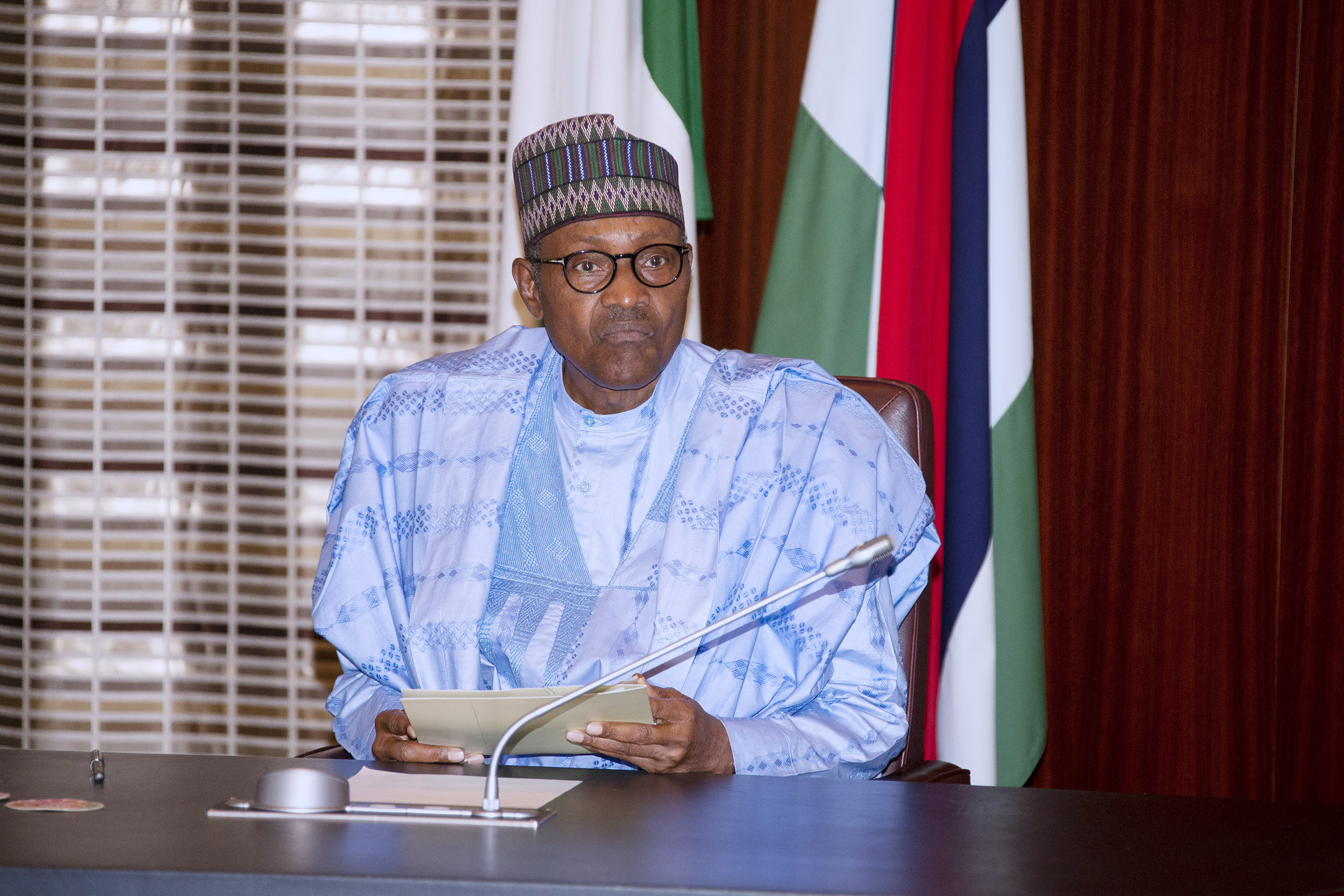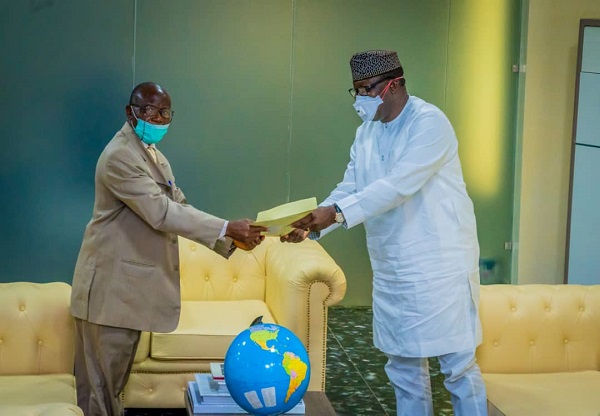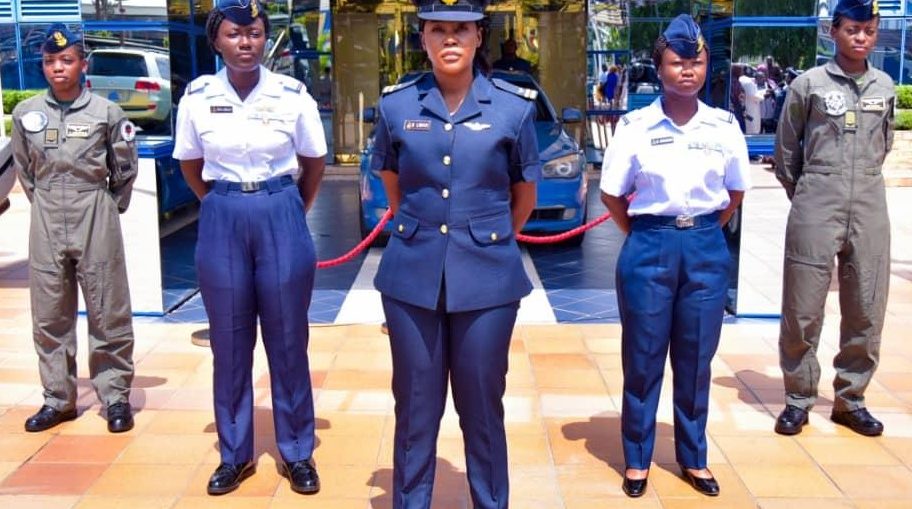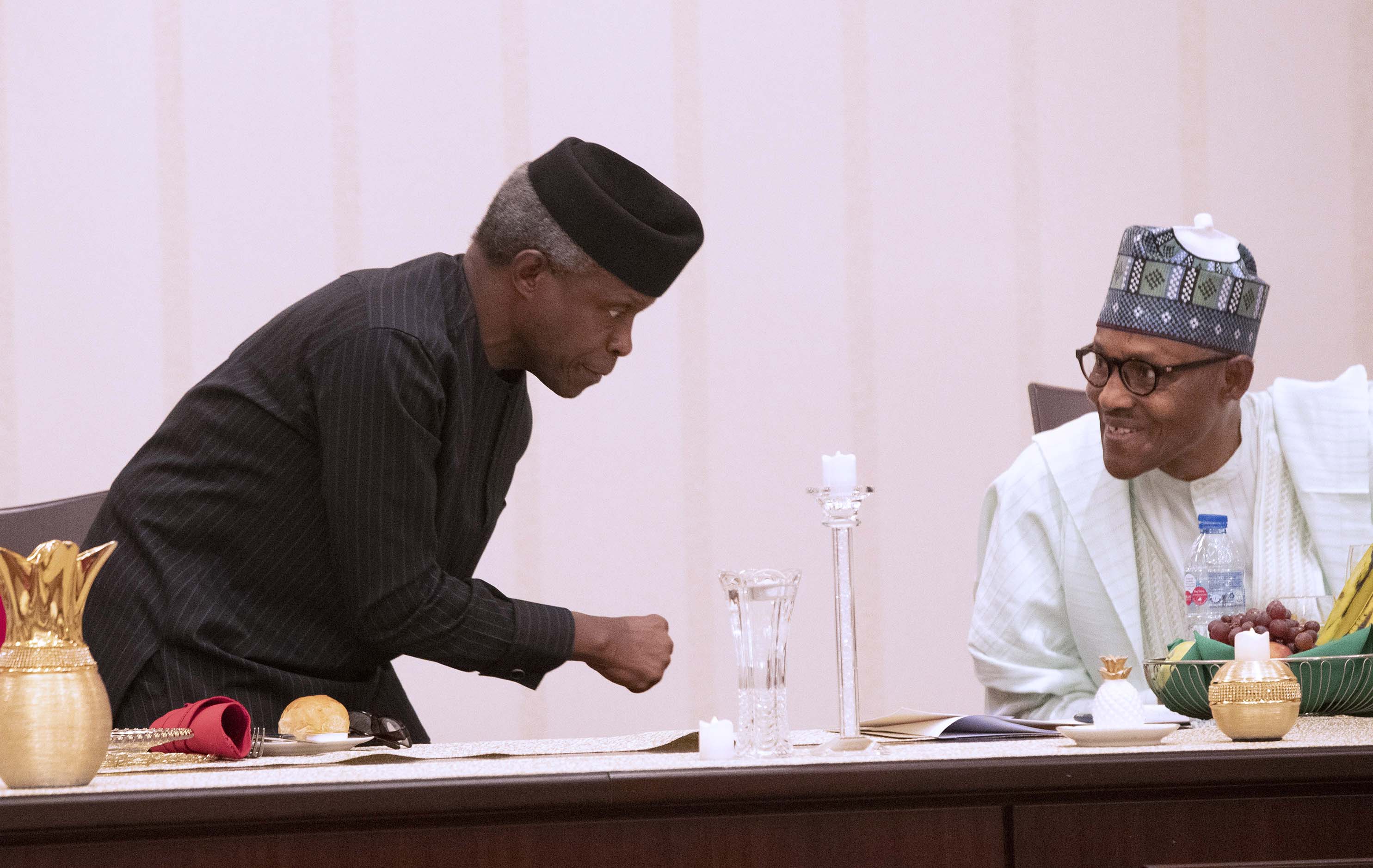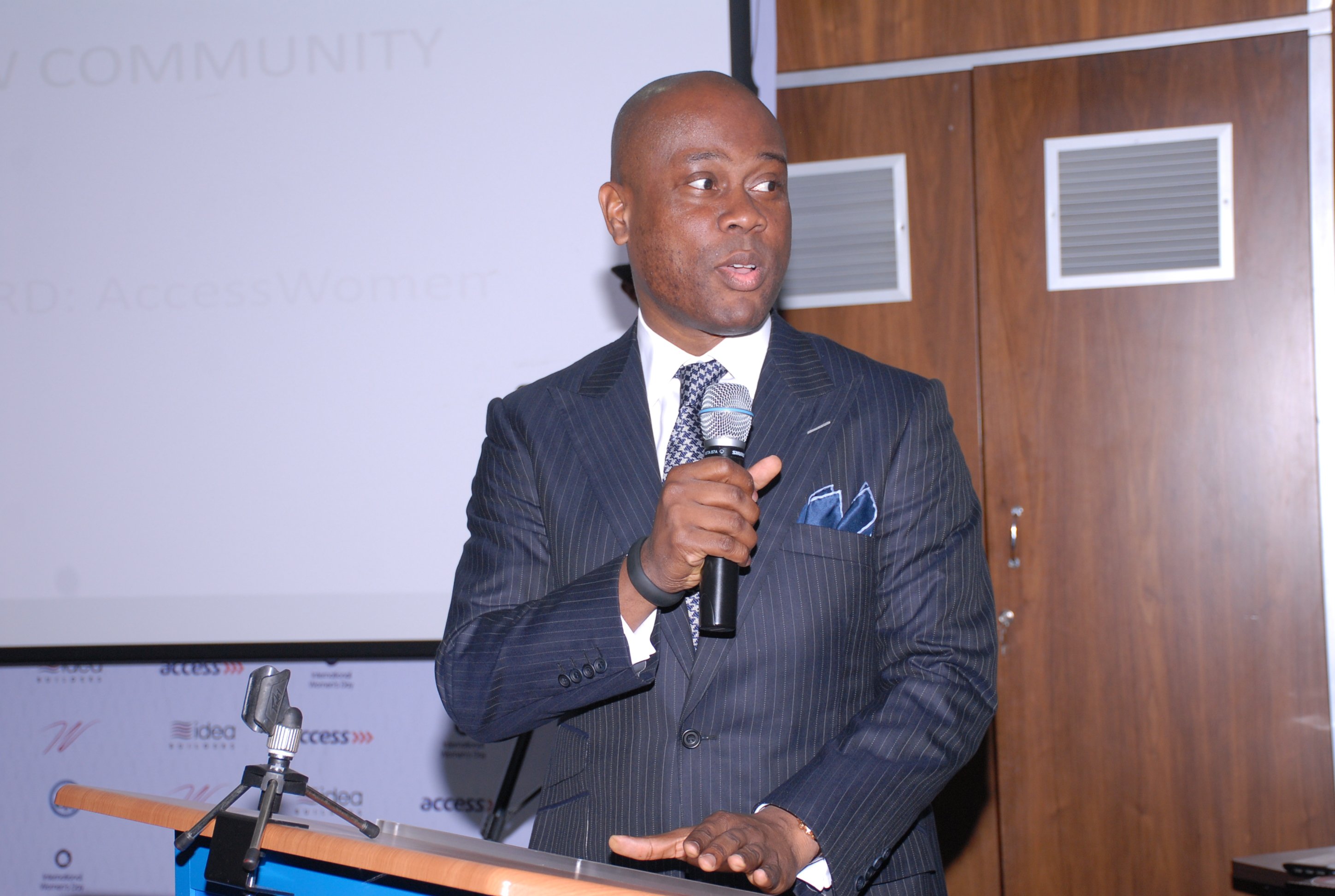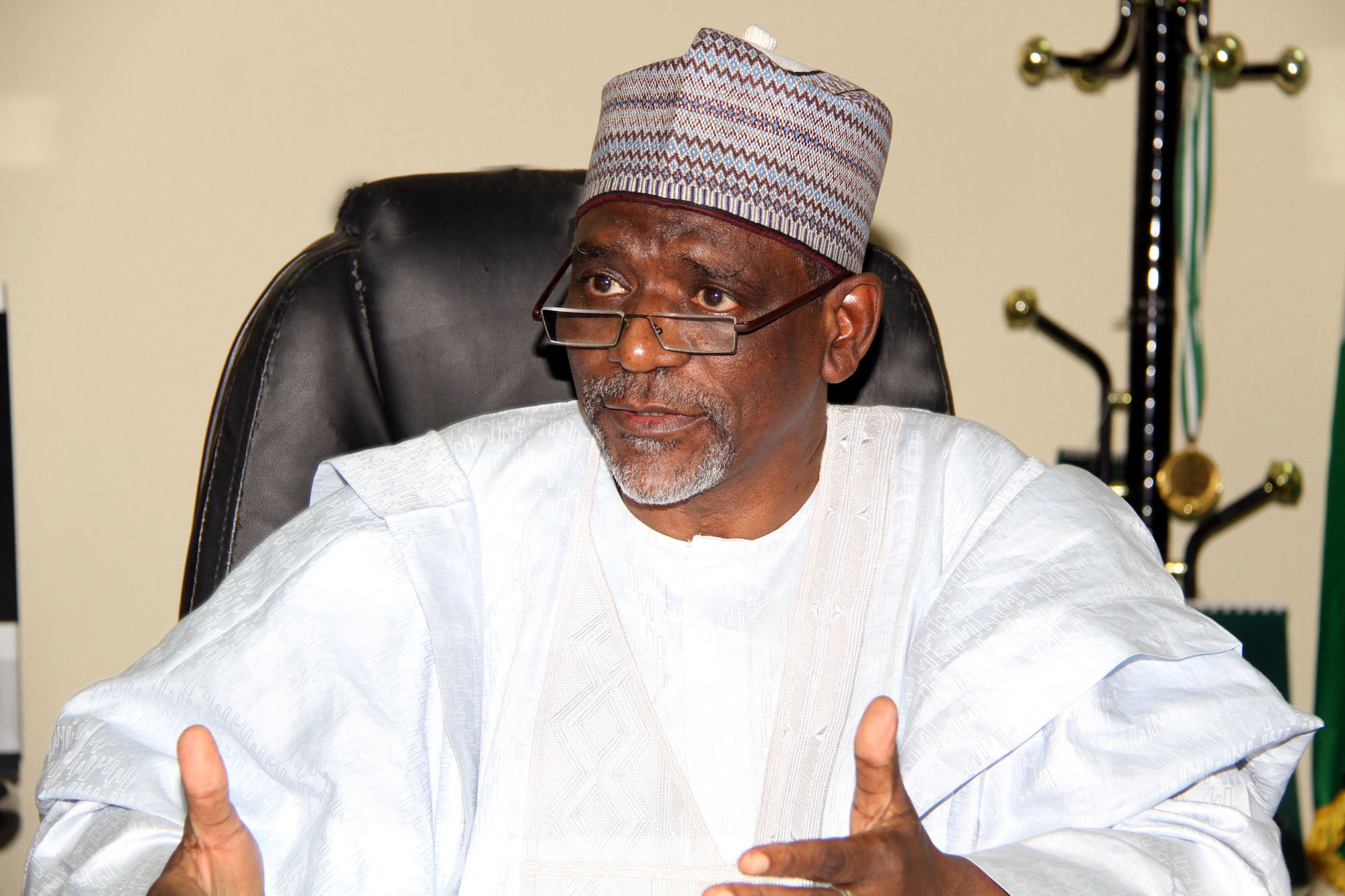PRESIDENT BUHARI METS CORONAVIRUS COMMITTEE ON THE ECONOMY 6. The Minister of Finance, Hajiya Zainab Ahmed speaking to the NTA Reporter after the meeting with the President by the Presidential Committee to Review the Imapct iof Coronavirus on the Economy held at the State House Abuja. PHOTO; SUNDAY AGHAEZE. APRIL 2 2020
We expected a storm. Nobody knew the storm would grow into a hurricane in a flash. The coming of COVID-19 was anticipated as it had troubled other parts of the world. Some feeble efforts at preparation were even made. But nobody ever anticipated that COVID-19 would make landfall with such ferocity as to obliterate every feeble attempt at human readiness.
But in moments of trouble heroes emerge. Circumstances assume unusual importance. History looks for those who will stand up to be counted; those who are ready to forget the dreams of the bedroom; those who will take a bullet for people to have peace.
Take the Governor of Lagos State, for instance, who has risen to become the avatar of the war against COVID-19, he has been leading from the front, trying to provide answers even when situations make the answers amorphous. That is who a leader is. As a result, his admirers are increasing by the day. Perhaps, he was made for this moment.
Yes, in war times, heroes emerge. Like our medical professionals who have been thrown into the frontline with barely the needed materials to confront a novel enemy with scant known features. Viewed from the background of a notoriously failed health sector, history will reserve a generous space for them when it makes a recall.
Advertisement
For, me there was always going to be another class of heroes – the media, who, oftentimes are under-appreciated, if not held in volatile suspicion, even in matters of development. Ordinarily, the media is encouraged to mobilize the government and the people and other agents of development into building a more commodious society for the overall well-being of the citizenry. No matter how tough the terrain is – in war times, natural disaster or in moments of epidemics – as we are in at the moment, the media practitioners should confront danger and also face the scorn of the authority and the powerful, to bring the news to the public. The media should enlighten and educate the people and even throw in some dash of entertainment to relax the nerves of the troubled.
In all of this, however, I would never have imagined that a few weeks down the line, we would not only be pleading for providential mercy for self-preservation but also for the survival and sustenance of businesses in the face of a hapless rout by a global pandemic.
I would not know what the tonic was, whether it was the visit of the Acting Director-General of the National Broadcasting Commission (NBC), Prof Armstrong Idachaba, to broadcast stations, requesting for understanding in the reportage of COVID-19, or some kind of push to stay in the vortex of an unfolding story. It was difficult then to understand the nature of such visitation but look at where the story has brought us, a virus in stubborn defiance of science and technology, and for once, pushing skeptics to acknowledge the existence of an almighty God who oversees the affairs of men.
Advertisement
The broadcast media got traction immediately, committing men and resources to pursue the COVID-19 story from the various ends of the country. There was always going to be a problem. The entire system has been on lockdown. In such dreary moment, advertisers are the first to take a flight, yet people want to receive signals at home and be informed and entertained. The Pay-TV operators may be smiling to the bank as subscriptions are spiking but not the terrestrial broadcasters who have to fund their operations on adverts and other forms of sponsorship. Their business is in shambles except those who enjoy some subterranean political backup.
There is another little matter which is often overlooked. Broadcasting was deregulated in 1992 in a process which looks pronouncedly evident that government continues to have a hand in it by funding government stations to the disadvantage and envy of the private broadcasters. This creates a kind of disequilibrium in the sector needing the urgent intervention of the NBC.
However, the cry coming from the broadcast industry is not by the private broadcasters alone. A statement by the Broadcasting Organisation of Nigeria (BON), the umbrella body of all broadcasters in the country, signed by its Chairman, Usman Umar Bello, sounded an urgent appeal to the government to rescue broadcasting from imminent collapse by taking some exigent measures which include: the funding of advertorial and public information campaigns running on broadcast organisations; and government approval of a stimulus package for the broadcast industry through tax rebates and an intervention fund for the broadcast industry to access long term capital at a single-digit interest rate. The body also canvassed the speedy conclusion of the Digital Migration process which has been lingering for several years.
In yet another appeal, the Independence Broadcasting Association of Nigeria (IBAN) in a statement signed by the secretary, Guy Murray-Bruce alerted the government that “The broadcast media has been hit both on the demand and supply side which has not only led to cash flow problems but has also resulted in an existential crisis for the Independent Private Broadcasters.” IBAN is calling for government support including the commissioning of a multi-billion COVID-19 awareness advertising campaign in an effort to support Nigeria’s struggling media industry.
Advertisement
The Association of Licensed Set-Top Box (STB) Manufacturers spoke from their corner of the business, urging the government to complete the broadcast digitization process which will unlock the manufacturing potentials of its members, and unleash the creative capacity of the entertainment industry. The statement signed by Godfrey Ohuabunwa, Chairman of the Association, noted that completing the process will free up some frequencies which government can auction for huge cash for telecommunications services especially as other sources of funds are drying up.
The lesson from all this is that COVID-19 is shrinking life, and businesses are shrinking even more. The business ecosystem is struggling for air and very soon all sectors will be rushing to the government for a bailout even when governance is nearly on dialysis. Organisations like the NBC will have to deflate its civil service bubble and biases to appropriate the fears and suggestions of its various stakeholders and articulate a position for urgent action by the government. Otherwise where we are is still nirvana. The dark end may not be too far away.
Okoh Aihe writes from Abuja
Advertisement
Views expressed by contributors are strictly personal and not of TheCable.
Add a comment

